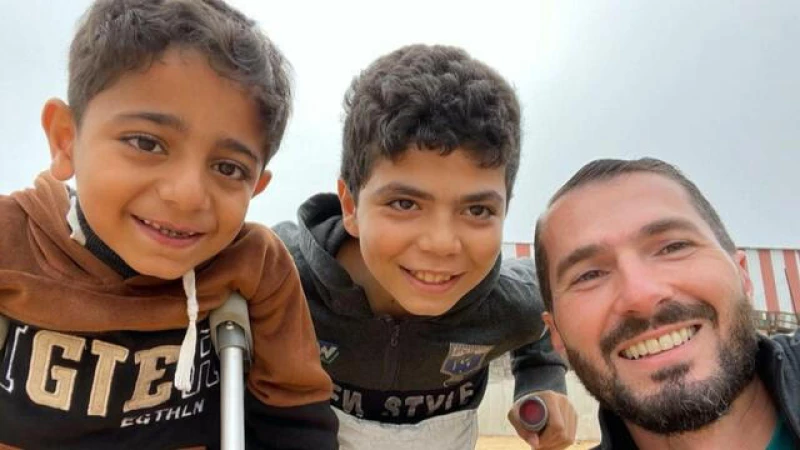Dr. Mohammad Subeh, a 39-year-old emergency physician, values family and faith above all else. This year, however, Ramadan holds a different meaning for him compared to previous years.
After spending five weeks in Gaza treating the youngest victims of the conflict between Israel and Hamas, Subeh returned home with a heavy heart. The ongoing assault on the coastal territory, which began after a brutal Hamas attack that claimed 1,200 lives in southern Israel, has left a devastating impact. Reports indicate that dozens of hostages are still being held in Gaza.
International aid agencies estimate that the war has resulted in the loss of over 33,000 Palestinian lives and has forced nearly all two million residents of Gaza to flee their homes. Subeh, a Palestinian refugee who grew up in the United States after being born in Kuwait, felt compelled to offer his medical expertise in Gaza despite never having visited the region before.
Reflecting on his experience, Subeh shared, "When I saw that 10-year-old take his last breath, all I could think about was 'I'm still breathing, how come I get to still breathe?'"
Subeh decided to go to Gaza, entering through the Rafah crossing. He documented his experiences with a daily video diary. In one entry, he said being on the ground was "almost like a zombie apocalypse movie."
Subeh said that in Rafah, where about half of Gaza's population is now squeezed, he would see about 200 emergency room patients a day. Most of them were children, he said.
"I'd never seen so many children killed in my entire career and I've been practicing now, this is my 12th year," Subeh said. "These are things that you never imagine, even in the worst horror movie that you would ever see in real life."
More than 13,000 Palestinian children across Gaza have been killed in Israeli strikes since Hamas' October 7th attacks, according to UNICEF.
Subeh said that the injuries he saw were so serious and the medical resources so scarce that he had to donate his own blood over and over again. Other supplies were impossible to find, he said.
"One of the basic things that we take for granted here is Tylenol, ibuprofen for fever control, pain control. We did not have that," Subeh said. "That was very painful for me because it's like 'If I only had this one thing, I could maybe have saved this child's life.'"
Dr. Subeh recounted the grim reality of treating patients who had been pulled out from the ruins of collapsed buildings in Gaza. Some of them had been trapped for days under debris, their faces unrecognizable after the ordeal.
"They had faces that you couldn't even recognize," Subeh shared in a video diary. "It's as if they'd entered a different realm, a different world."
While focusing on treating children's injuries, Subeh also encountered numerous patients with deep emotional trauma that may haunt them for a lifetime.
"They came to me with this glazed look of terror," Subeh recalled. "What impact does this have on them for years to come?"
After spending five weeks in Gaza, Dr. Subeh returned to California to be with his family and celebrate the Muslim holiday of Ramadan. However, the memories of what he witnessed in Gaza continue to weigh heavily on him.
"I do feel this deep sense of guilt that I left Gaza, and I left the people there that I've grown to really have a deep connection with and love for," Subeh expressed.
Despite the emotional toll, Dr. Subeh expressed his desire to return to Gaza in the future, hoping for better circumstances.
"I would love to see them live with the freedom to be able to do everything that we're able to do," Subeh stated. "Every human being deserves that."







